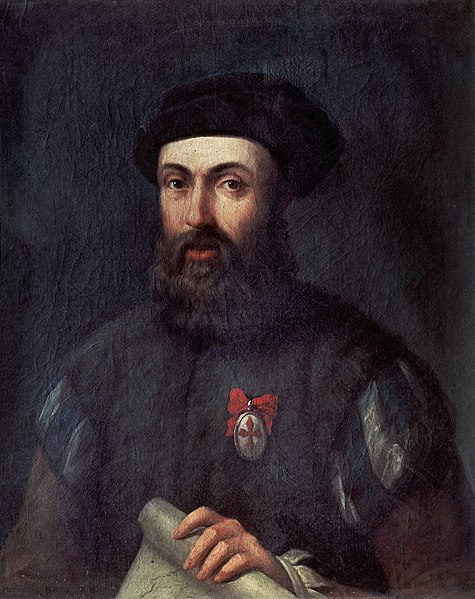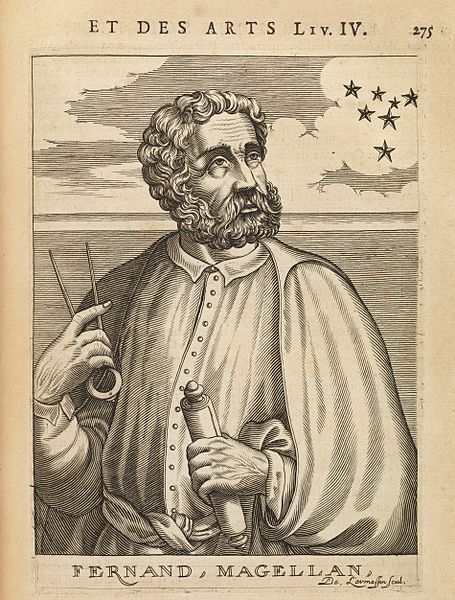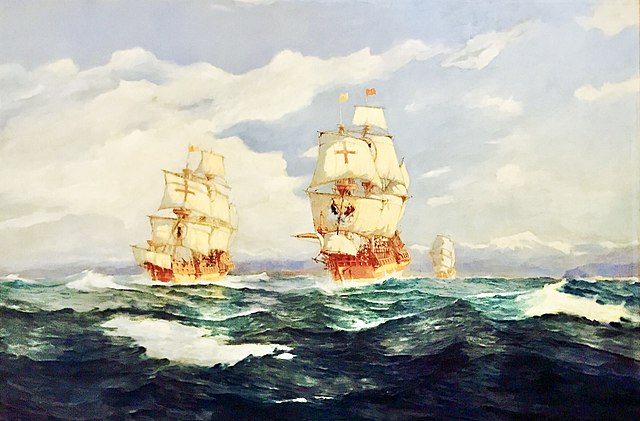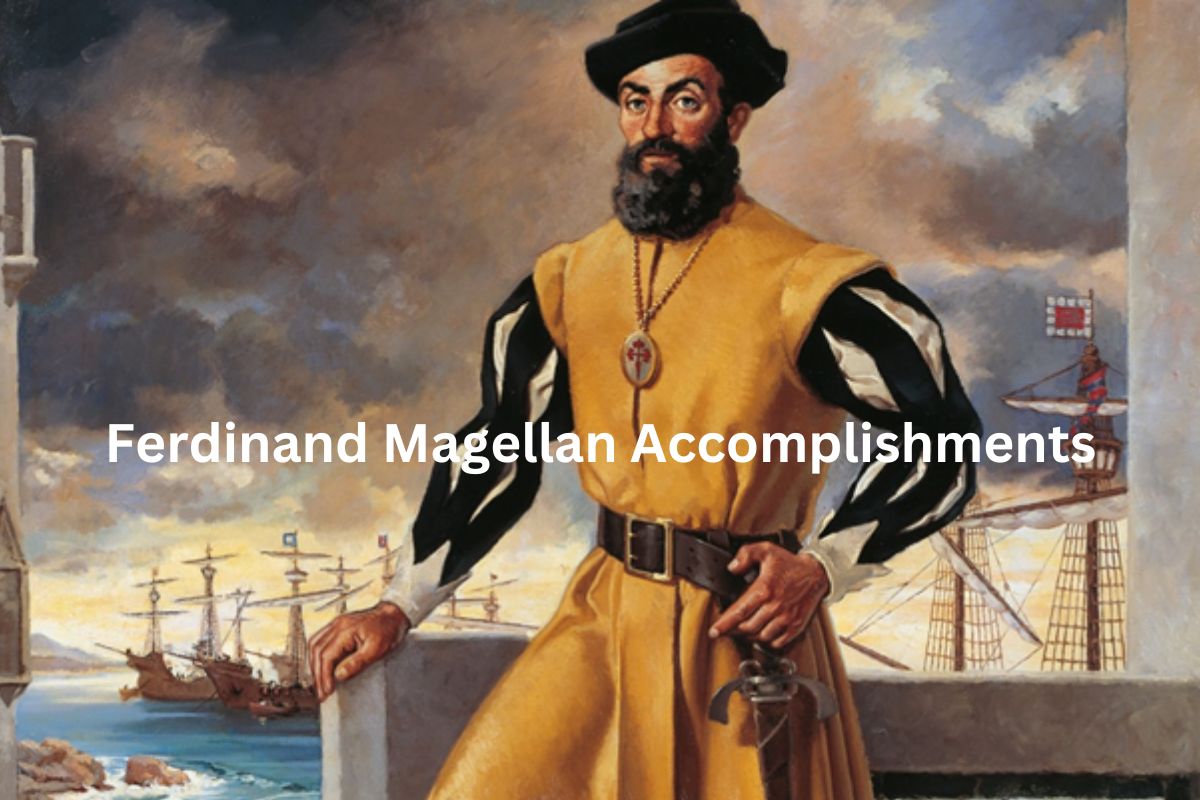Ferdinand Magellan was a Portuguese explorer who lived from around 1480 to 1521. He is best known for leading the first successful circumnavigation of the Earth. Born in Portugal, Magellan later sailed under the flag of Spain.
In 1519, he set sail with a fleet of five ships to find a western route to the Spice Islands. During his expedition, Magellan discovered the Strait of Magellan, a navigable passage connecting the Atlantic and Pacific Oceans.
Although he died during the journey in the Philippines in 1521, his crew continued and completed the circumnavigation, returning to Spain in 1522.
Magellan’s voyage significantly expanded European knowledge about the Americas, the Pacific Ocean, and opened up new trade routes. His legacy as a pioneering explorer and his contributions to navigation and cartography have left a lasting impact on the history of exploration.
Accomplishments of Ferdinand Magellan
1. First circumnavigation of the Earth
Ferdinand Magellan’s most significant accomplishment was leading the first successful circumnavigation of the Earth. In 1519, he set sail from Spain with a fleet of five ships and around 270 men.
Also Read: Ferdinand Magellan Timeline
Although Magellan himself did not complete the journey, as he was killed in the Philippines, his crew continued the expedition and returned to Spain in 1522. This achievement marked a significant milestone in human exploration, demonstrating that it was possible to sail around the entire globe.

2. Discovery of the Strait of Magellan
During his voyage, Magellan discovered a navigable passage that connected the Atlantic and Pacific Oceans. This waterway, now known as the Strait of Magellan, is located at the southern tip of South America, separating Tierra del Fuego from the mainland.
By finding this route, Magellan provided a new way for ships to navigate between the two oceans, avoiding the treacherous waters around Cape Horn.
3. Mapping of the Pacific Ocean
As Magellan’s expedition ventured into the Pacific Ocean, the crew encountered numerous islands, archipelagos, and coastlines that had never been seen or mapped by Europeans before. Magellan and his crew meticulously charted the territories they encountered, gathering valuable geographical information and creating detailed maps.
Their efforts significantly contributed to expanding European knowledge of the vast Pacific Ocean, its islands, and its navigational challenges. This newfound knowledge helped future explorers and traders navigate and explore the Pacific with greater accuracy and confidence.
4. Naming the Pacific Ocean
During his voyage, Ferdinand Magellan encountered the vast expanse of water that we now know as the Pacific Ocean. Struck by the calm and tranquil nature of the ocean compared to the often tempestuous Atlantic, Magellan named it the “Mar Pacifico” or “peaceful sea.”
This naming not only recognized the unique characteristics of the Pacific but also marked a significant contribution to the cartography and understanding of the world’s oceans.

5. Introduction of the Philippines to the Western world
While searching for a western route to the Spice Islands (known as the Moluccas), Magellan and his crew arrived in the Philippines in 1521. This was the first recorded instance of European contact with the archipelago.
Magellan and his crew made diplomatic connections with local rulers and engaged in trade activities. This encounter opened the door for subsequent Spanish expeditions and colonization efforts in the Philippines, eventually leading to centuries of Spanish influence in the region.
6. Expansion of European knowledge about the Americas
Ferdinand Magellan’s voyage also contributed significantly to the expansion of European knowledge about the Americas.
As his fleet explored the coastlines of South America, they collected detailed information about the geography, indigenous populations, and natural resources of the newly encountered lands.
Magellan’s expedition revealed the vast extent of South America and contributed to a better understanding of the continent’s shape and features. The information gathered during his voyage provided a foundation for subsequent European exploration, colonization, and trade ventures in the Americas.
7. Advancement of navigational techniques
Ferdinand Magellan’s circumnavigation voyage involved solving numerous navigational challenges. One of the most significant advancements made during his expedition was in determining longitude.
Magellan and his crew used various methods, including celestial navigation and the use of astrolabes and quadrants, to calculate their longitude accurately.
Their efforts contributed to the development and refinement of navigational techniques, improving the accuracy of maritime navigation in subsequent voyages and expeditions.

8. Promotion of the concept of circumnavigation
Magellan’s successful circumnavigation of the Earth helped promote and popularize the concept of sailing around the world. Prior to his expedition, the idea of circumnavigation was considered a daunting and unattainable feat.
However, Magellan’s accomplishment demonstrated that it was indeed possible. His voyage inspired other explorers and sailors to embark on similar journeys, contributing to a surge in exploration and the pursuit of global navigation in the Age of Discovery.
9. Expansion of trade routes
One of the primary motivations behind Magellan’s voyage was to find a western route to the Spice Islands (Moluccas), a region rich in valuable spices. Although Magellan did not reach the Spice Islands himself, his expedition played a significant role in expanding trade routes.
The knowledge gained from his journey, including the discovery of the Strait of Magellan, opened up new possibilities for trade by establishing direct routes across the Pacific Ocean.
This contributed to the growth of global trade networks and facilitated the exchange of goods, ideas, and cultures between different regions of the world.
10. Legacy of exploration
Ferdinand Magellan’s accomplishments left a lasting legacy in the history of exploration. His successful circumnavigation and the extensive knowledge gathered during his voyage paved the way for further exploration and colonization efforts by other European powers.
Magellan’s expedition demonstrated the feasibility of global navigation, inspiring subsequent explorers to embark on their own ambitious voyages of discovery.
The Age of Discovery, triggered in part by Magellan’s achievements, led to a profound transformation in the understanding of the world, the expansion of empires, and the exchange of goods and ideas across continents.
